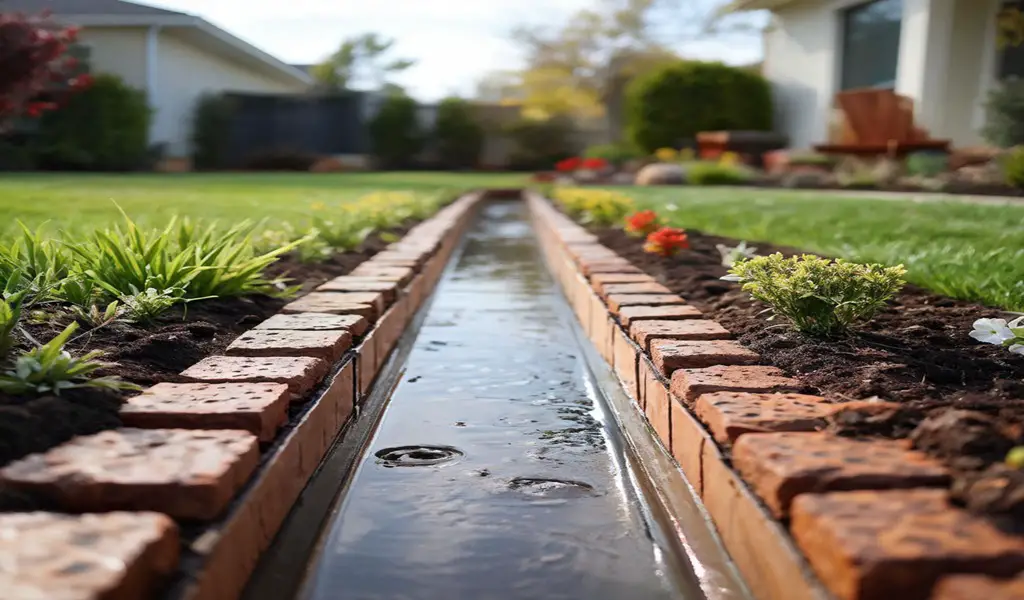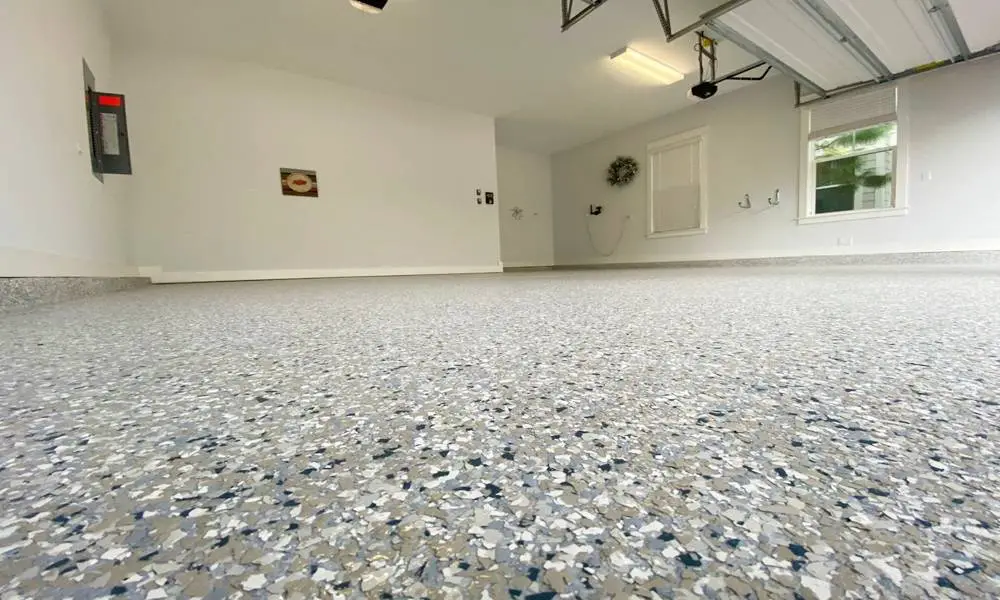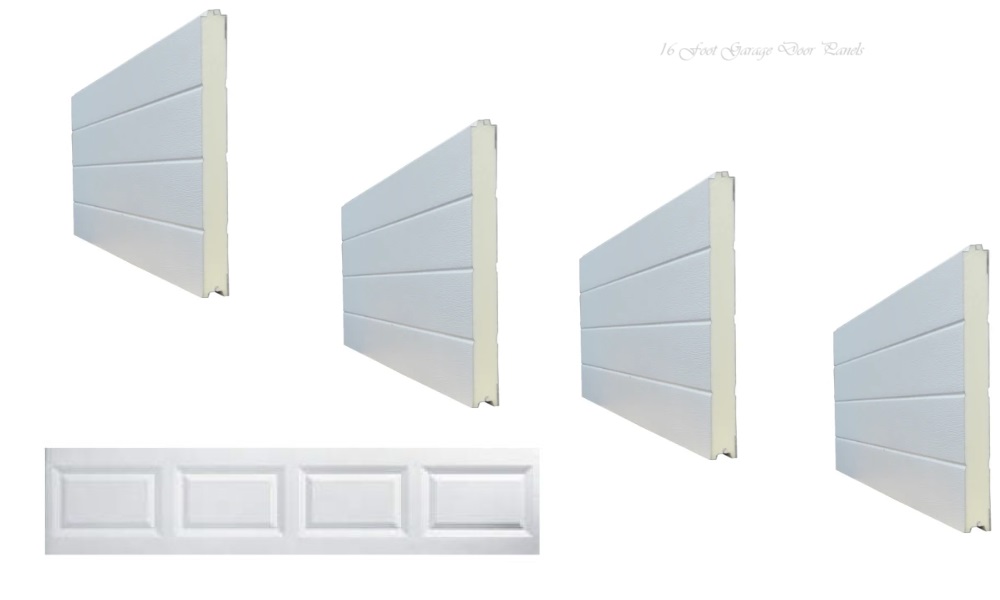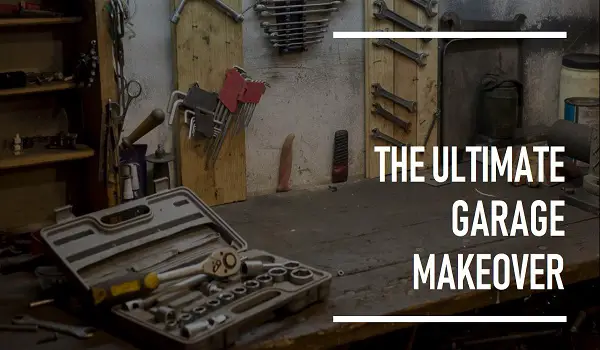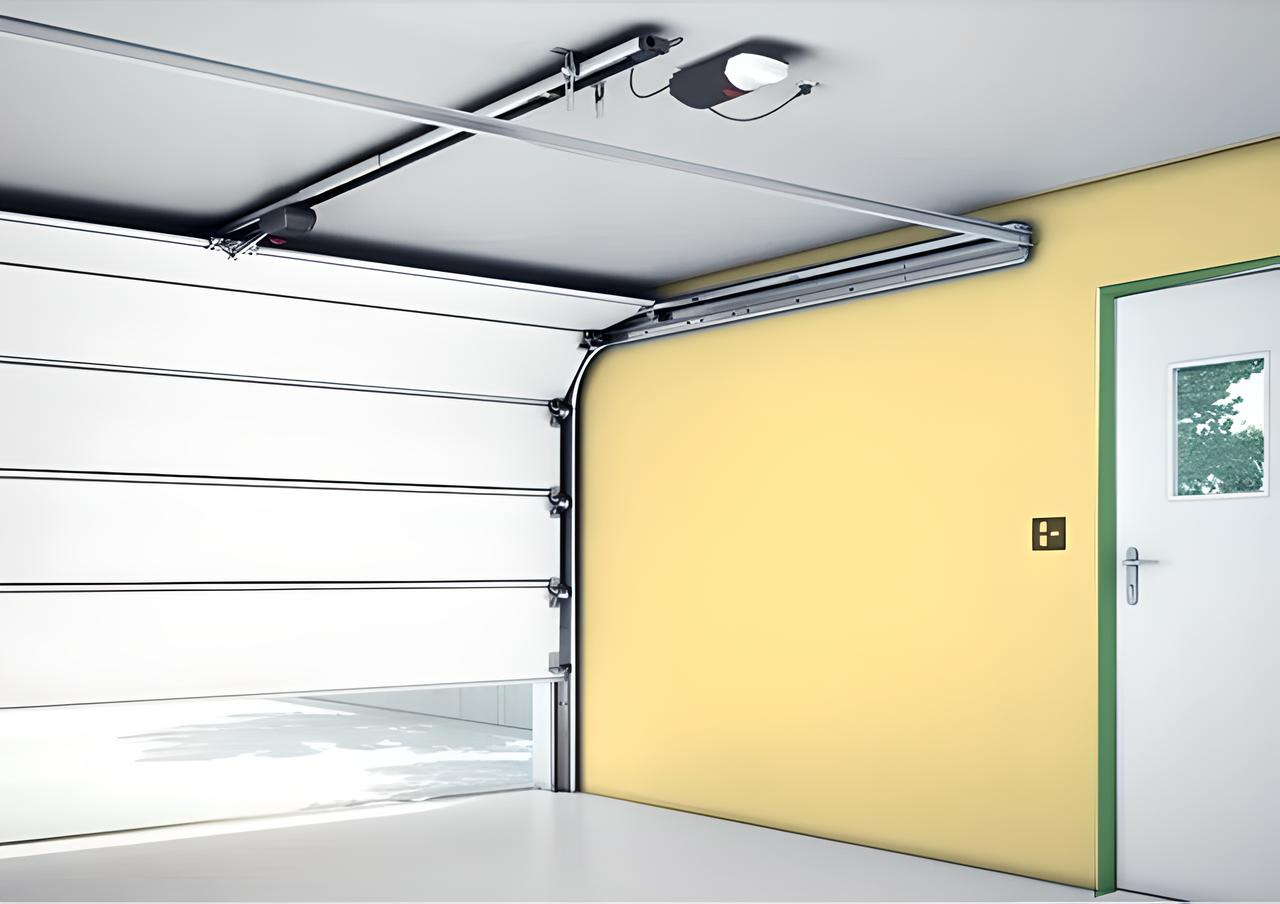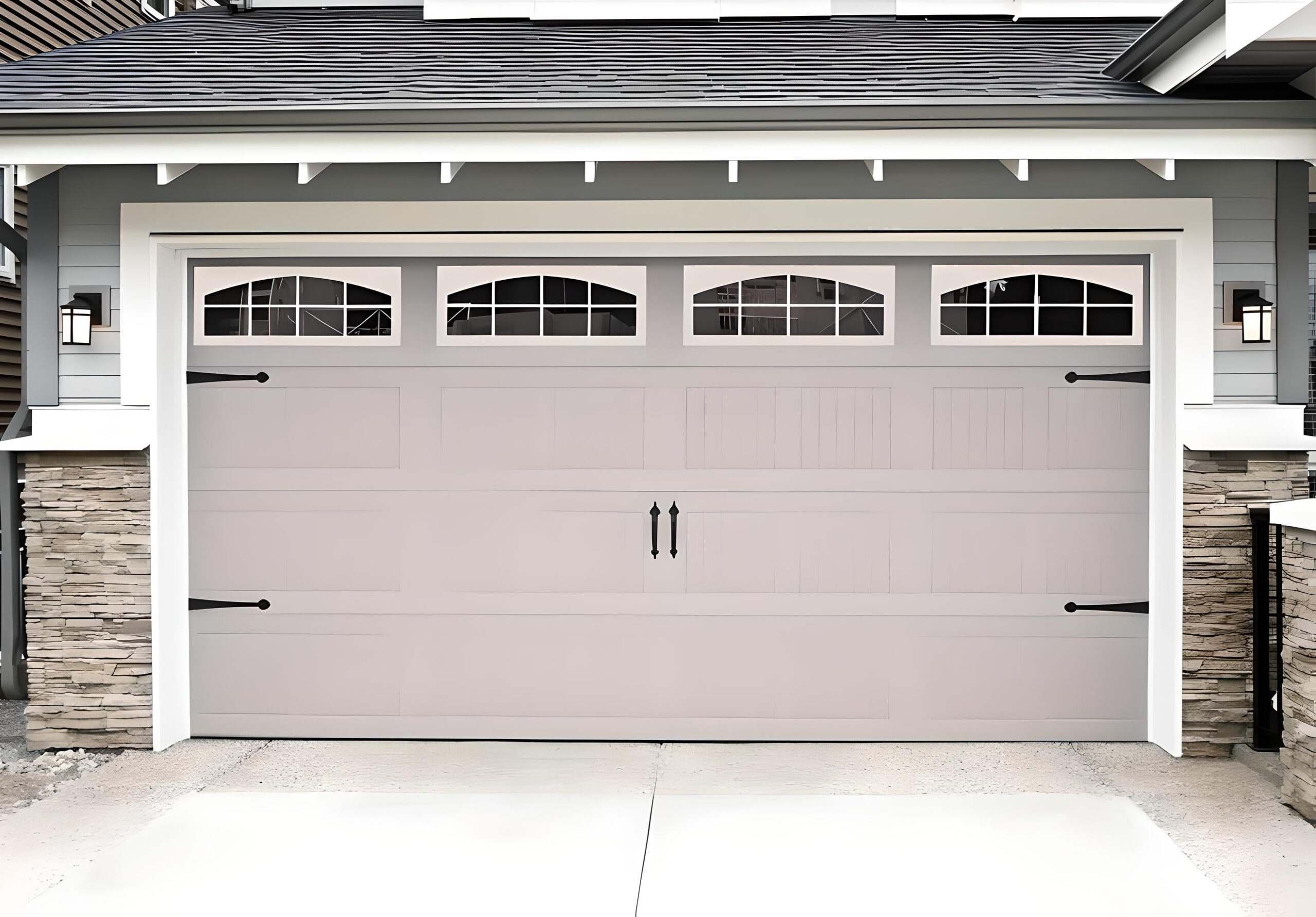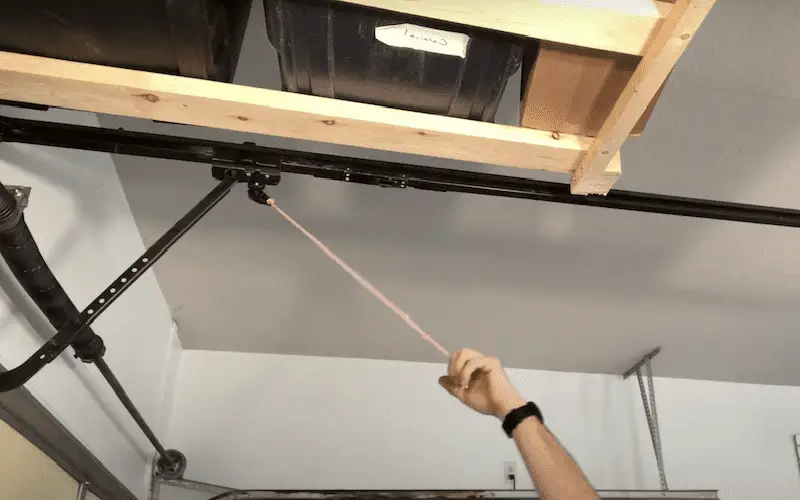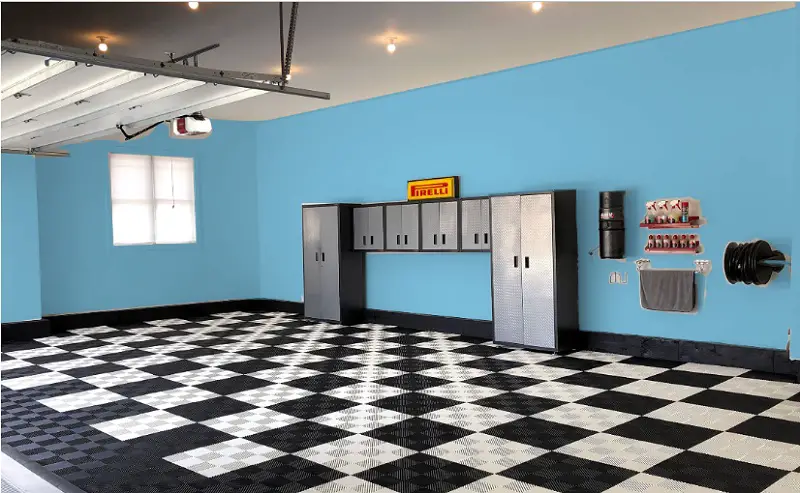How to Add Garage to Front of House
When considering home improvements, the idea of adding a garage to the front of your house can be both exciting […]
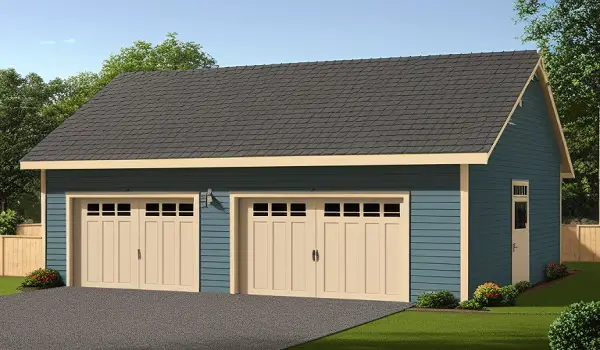
When considering home improvements, the idea of adding a garage to the front of your house can be both exciting and practical.
A garage is not just a space to park your vehicle; it’s a space-saving, convenient, and secure addition that can offer various benefits.
In this comprehensive guide, we will walk you through the process of adding a garage to the front of your house, covering everything from types of garages and zoning requirements to design considerations, construction factors, and costs.
What is a Garage?
A garage is a covered and enclosed structure designed to provide shelter for vehicles, along with additional storage space.
Beyond its primary purpose of housing cars, a garage can offer a range of benefits that contribute to the functionality and aesthetics of your property.
With the right design, a garage can add value to your home, improve curb appeal, and increase your home’s resale value.
Why Add a Garage to the Front of Your House?

Adding a garage to the front of your house might raise questions, but the benefits can outweigh any concerns.
The foremost advantage is the space-saving aspect. By utilizing the front of your property, you optimize the available space while keeping your backyard free for other outdoor activities.
Additionally, a front-facing garage is convenient, allowing easy access to your vehicles and belongings without navigating through the entire property.
Benefits of Adding a Garage to the Front of Your House
The decision to add a garage to the front of your house can offer numerous advantages, such as:
- Improved Convenience: A front-facing garage provides swift and direct access to your vehicles, making daily routines much more convenient.
- Enhanced Security: Vehicles parked inside a garage are better protected from theft, vandalism, and harsh weather conditions.
- Weatherproof Shelter: A garage shields your vehicles from the elements, preventing damage caused by rain, snow, UV rays, and other environmental factors.
- Value Addition: Well-designed garages can add value to your home, giving potential buyers an attractive and practical feature that can set your property apart.
- Curb Appeal: Thoughtful design and integration of the garage into your home’s facade can significantly improve your property’s curb appeal.
- Increased Resale Value: A garage is an investment that can yield returns by increasing your home’s resale value when the time comes to sell.
Types of Garages
There are several types of garages to consider when planning your addition:
- Attached Garages: These garages are directly connected to your house and provide seamless access from indoors to your vehicles. They offer convenience and protection from the elements.
- Detached Garages: Detached garages are standalone structures that can be placed strategically on your property. They provide more design flexibility and can be used for additional purposes beyond vehicle storage.
- Carports: Carports are open-sided shelters that provide basic protection for vehicles. While not fully enclosed, they are a more budget-friendly option and can still offer weatherproof benefits.
Ideas add garage to front of house
Here are some ideas for adding a garage to the front of your house:
1. The Classic Touch: An Attached Garage
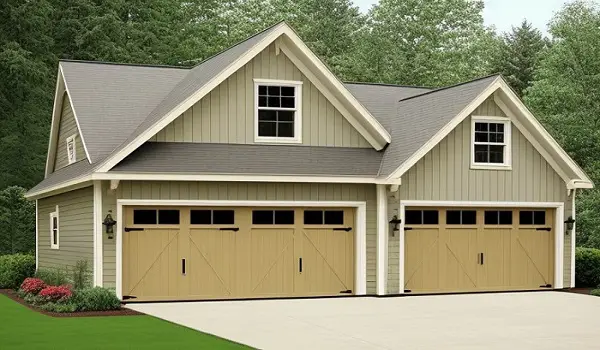
Picture this: a seamless extension of your home that doesn’t just add parking space but also seamlessly blends in with your architectural aesthetics.
Welcome to the world of attached garages! Whether you prefer a cozy one-car arrangement or need space for your prized collection, attached garages offer flexibility in size and materials. Want that rustic vibe? Opt for wood.
Aiming for a sleek modern look? Consider brick or concrete. The choice is yours, and your garage will become an integral part of your home’s façade.
Pros:
- Seamless extension of your home
- Blends in with architectural aesthetics
- Flexibility in size and materials
- Can be customized to your liking
- Increases home value
Cons:
- Can be more expensive than other options
- May require structural changes to your home
- May block some natural light
2. The Oasis of Storage: Detached Delight
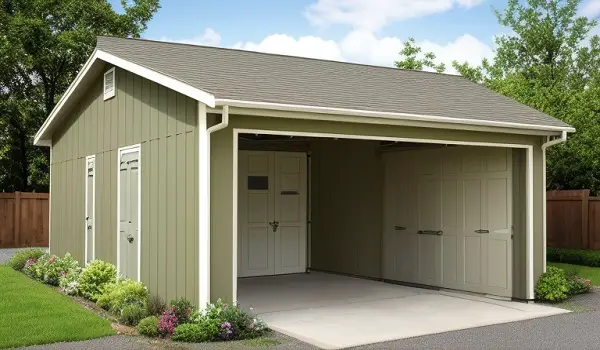
Now, let’s take a stroll to the back. Detached garages provide an opportunity to create a separate haven for your vehicles and more.
Imagine a spacious structure with room for multiple cars, perhaps a workshop, and storage lofts. This is not just a parking spot; it’s an extension of your lifestyle.
Your backyard gets to breathe, and you get a spacious garage that’s more than just a place to park. Who said practicality can’t be stylish?
Pros:
- More spacious than attached garages
- Can be used for storage or other purposes
- Less expensive than attached garages
- Does not require structural changes to your home
Cons:
- Can be unsightly if not designed well
- May require a larger lot
- May not be as secure as attached garages
3. Cost-Effective Chic: The Carport Solution
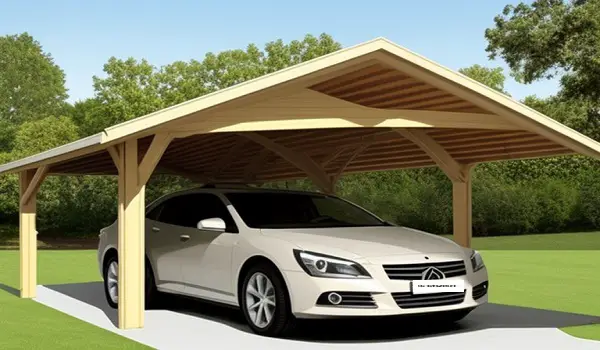
Looking for something lighter on the wallet but still stylish? The carport might be your answer. It’s like a sunroof for your vehicles offering protection from the elements without compromising the open-air feel.
While it might not match the security of a fully enclosed garage, it’s a great compromise that enhances your home’s aesthetics. Plus, it’s an opportunity to play with design and create an elegant entrance for your vehicles.
But wait, before you put on your construction hat, here are some important things to ponder:
Pros:
- Least expensive option
- Does not require structural changes to your home
- Can be customized to your liking
- Provides protection from the elements
Cons:
- Not as secure as a garage
- May not be as aesthetically pleasing as a garage
- May not be suitable for all climates
Zoning and Permitting Requirements
Before embarking on any construction project, it’s crucial to understand the zoning and permitting requirements in your area.
What are Zoning and Permitting Requirements?
Zoning regulations define how land can be used in specific areas, including property setbacks, building height limits, and more.
Permits are legal authorizations that you need to obtain before starting construction. These regulations ensure that your project complies with safety, environmental, and aesthetic standards.
How Do I Find Out About Zoning and Permitting Requirements in My Area?
To find out about the specific zoning and permitting requirements in your area, you should contact your local city or county planning department. They can provide you with the necessary information, forms, and guidance to navigate the process smoothly.
Design and Construction Considerations
When designing and constructing a garage, several factors need careful consideration:
What Factors Should I Consider When Designing and Constructing a Garage?
- Functionality: Consider how you plan to use the garage – not only for vehicle storage but also for potential storage needs, workshop space, or other activities.
- Aesthetics: Design the garage to harmonize with your home’s architecture, improving curb appeal and overall visual coherence.
- Size and Layout: Determine the optimal size of the garage to accommodate your vehicles and storage requirements. Plan the layout for efficient movement within the space.
- Ventilation and Lighting: Ensure proper ventilation and lighting to create a comfortable and functional environment inside the garage.
Materials: Choose durable and weather-resistant materials that will withstand the test of time and protect your vehicles and belongings.
What is My Budget?
Your budget plays a crucial role in determining the scope and scale of your garage addition. Consider factors such as materials, labor costs, permits, and any additional features you wish to include.
Cost to Add a Garage
How Much Does It Cost to Add a Garage?
The cost of adding a garage can vary significantly based on factors such as location, size, materials, design complexity, and local labor costs. On average, building a garage can range from several thousand dollars to tens of thousands of dollars.
What Factors Affect the Cost of Adding a Garage?
- Size and Complexity: Larger garages or those with intricate designs will naturally incur higher costs.
- Materials: The choice of construction materials can impact costs. High-quality, durable materials may come with a higher upfront cost but can lead to long-term savings.
- Labor Costs: Local labor rates can influence the overall cost. Areas with higher living costs tend to have higher labor charges.
- Additional Features: If you plan to include features like insulation, heating, electrical outlets, or plumbing, these will contribute to the overall cost.
Here is a general price range for adding a garage to the front of your house:
- One-car garage: $15,000 – $30,000
- Two-car garage: $25,000 – $45,000
- Three-car garage: $35,000 – $60,000
It is important to get quotes from several contractors before making a decision, as prices can vary significantly depending on the factors mentioned above.
How Can I Finance the Cost of Adding a Garage?
There are several options to finance your garage addition, including personal savings, home equity loans, personal loans, or refinancing your mortgage. Carefully assess each option to determine what works best for your financial situation.
Conclusion
Adding a garage to the front of your house is a decision that can bring about a multitude of benefits, from convenience and security to improved property value and curb appeal.
By considering the various types of garages, adhering to zoning and permitting requirements, and meticulously planning the design and construction, you can embark on a successful garage addition project.
Remember that while costs may vary, the investment can pay off in terms of both practicality and the long-term value it adds to your home.
